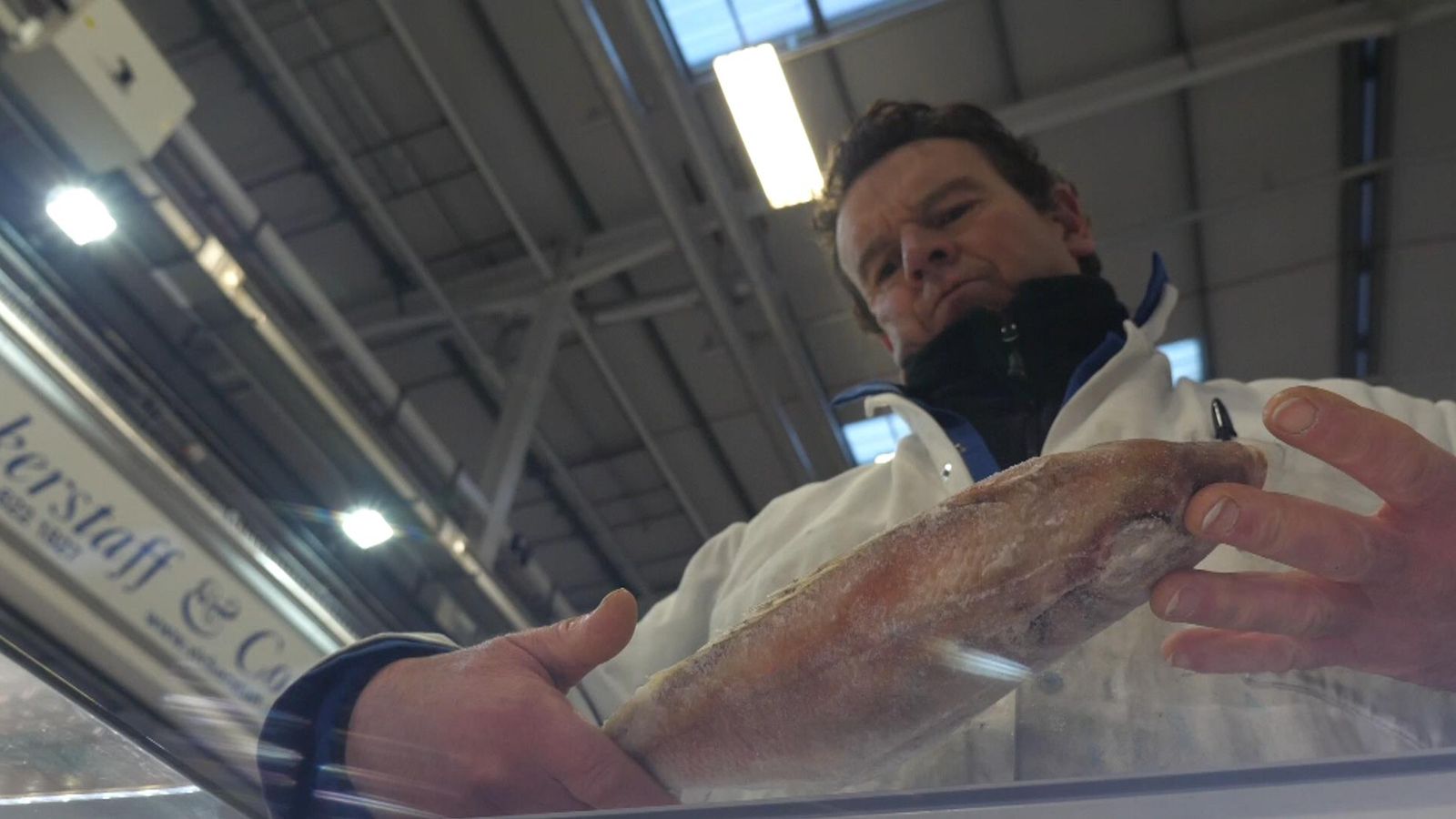Business owners across the country are waiting to see what the first day outside the customs union and single market holds for them.
While some are optimistic about the change in trading rules from New Year’s Day, others say it’s led them to regret their Brexit vote.
At Birmingham Wholesale Market, hundreds of crates of goods have been carted in and out before the sun is even up.
This place relies on a constant stream of lorries, with some traders sourcing up to 80% of their goods from the EU.
It’s been a tough year for Tahir Amin, who runs A1 Veg Ltd, a vegetable and fruit wholesaler.
Business is already down 70% at the hands of the pandemic – many of his clients are in the hard-hit catering industry.
Importing stock “will definitely be a little bit more expensive” he says, “because of customs, because of transport, because of many other reasons, it starts from tomorrow so we’ll see.”
Across the market hall, Peter Marshall, chairman of fruit and veg wholesaler Hegashall Ltd, is similarly unsure how it will all play out.
“There’s going to be an impact,” he says.
“There’ll be a cost involved and that cost will be handed on to the consumer, because obviously with the extra paperwork and the extra time at the ports.
“I did vote for Brexit, but I think if I had my time again… I don’t know.”
Mr Marshall says it is the impact on his business and the toll he’s seen Brexit take on the whole country that’s made him question his vote.
But there’s optimism at the market too.
Steven Waters, owner of fish and seafood traders J. Vickerstaff, said: “I don’t believe they’ll be huge change in the long term.
“In the short term there may be a couple of weeks where suppliers are maybe just a little bit nervous but long term I’m very optimistic. I believe it’s a huge opportunity for this country as a whole – we should grab it with both hands.”
Under the UK-EU trade deal – although most goods won’t face new tariffs or quotas – there will be customs checks on anything crossing between the EU and the UK and on many items going to and from Northern Ireland.
Some goods, including certain UK animal food products, will have to comply with new rules and restrictions and hauliers will need new “Kent Access Permits” to enter the county.
It may mean delays at the ports and many fear a repeat of the long queues seen at Dover after France shut the border over concerns about a new variant of the coronavirus.
Essex-based haulage firm Young’s Transportation and Logistics are so concerned they’re temporarily halting all European services to assess if they’ll be “mission impossible”
Rob Hollyman, a director at Young’s, said: “The dangers of being involved in long, long delays and receiving no revenue for those long delays would actually cost more money.
“It is a gamble on our part, we might have an awful lot of egg all over our face come next week but I suspect not – I think it’s going to be a very challenging week next week.”
Many other business are now faced with meeting whole new sets of standards to be allowed to sell their products in the EU and making the changes will hit small business the hardest.
Renee Watson’s company makes science kits for children – she estimates new safety certifications alone will cost her £20,000. She says the stress is taking a toll on her mental health.
Ms Watson said: “I really worry that there’s going to come a point where cash flow is going to become a real issue.
“I might not be able to afford to pay my team, and the stress and the mental load of that by far outweighs anything else.
“I’m really worried about the financial and real tangible impact. This is not posturing about the impact of Brexit and the possibilities, this is about right now – small businesses are really struggling to keep going financially.”
Very few business owners were of working age when the UK first joined the European Common Market in 1973.
For so many, for better or for worse, 1 January heralds a whole new era for British business.


